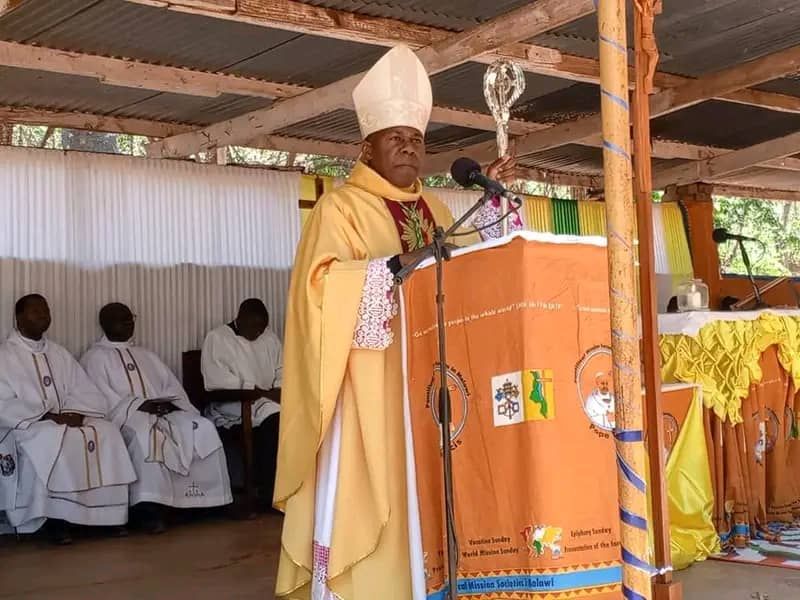By Burnett Munthali
Auxiliary Bishop Vincent Mwakhwawa of the Lilongwe Archdiocese recently delivered a powerful message to the faithful, urging them to engage in prayer for positive change in both their personal lives and the broader community. This call to action comes at a critical time when Malawi faces numerous challenges, including political instability, economic hardship, and social injustices.
Bishop Mwakhwawa’s plea for Christians to pray for political leaders reflects a deep concern for the moral and ethical conduct of those in power. His admonition against deceitful practices during election seasons is particularly relevant, given the history of political manipulation in Malawi. By emphasizing the importance of integrity in governance, the Bishop is not only encouraging accountability among leaders but also inspiring citizens to demand higher standards from those who represent them.

The Bishop’s message resonates with many Malawians who are weary of political gamesmanship and corruption. As the nation prepares for upcoming elections, the call for leaders to abandon dishonest tactics and commit to genuine service is a timely reminder of the electorate’s expectations. It highlights the critical role that faith and moral values should play in the political arena.
In addition to addressing political issues, Bishop Mwakhwawa’s message acknowledges the pressing social challenges facing many individuals in Malawi. His reference to those suffering from hunger and poverty underscores the urgent need for compassion and action within the community. By encouraging the faithful to pray for those in need, the Bishop is advocating for a culture of empathy and support, reminding Christians of their responsibility to care for the vulnerable.
This aspect of his message serves as a call to action for the church and its members to become more actively involved in addressing societal issues. It is a reminder that faith should not only be about spiritual devotion but also about tangible actions that uplift and empower those who are struggling.
Bishop Mwakhwawa’s emphasis on self-reflection and good character is another critical element of his message. He encourages the faithful to demonstrate integrity in their daily lives, which is essential for fostering a sense of community and trust. This call for personal accountability aligns with the church’s broader mission to instill values that contribute to social cohesion and moral development.
By promoting the idea that individual character can have a collective impact, the Bishop is advocating for a grassroots approach to societal change. This perspective empowers individuals to recognize their potential to influence the world around them positively.
Auxiliary Bishop Mwakhwawa’s message during the Chibalalitso ceremony at the Our Lady of Help parish in Kachebere encapsulates a holistic approach to addressing the multifaceted challenges facing Malawi today. By urging prayer for political integrity, acknowledging human suffering, and promoting good character, the Bishop is calling for a comprehensive response to the country’s issues—one that encompasses both spiritual and practical dimensions.
As Malawi navigates its path forward, the insights from Bishop Mwakhwawa serve as a reminder of the power of faith to inspire action and the importance of collective responsibility in building a just and equitable society. His call for prayer is not merely a plea for divine intervention; it is an invitation for the faithful to become active participants in the quest for positive change.


